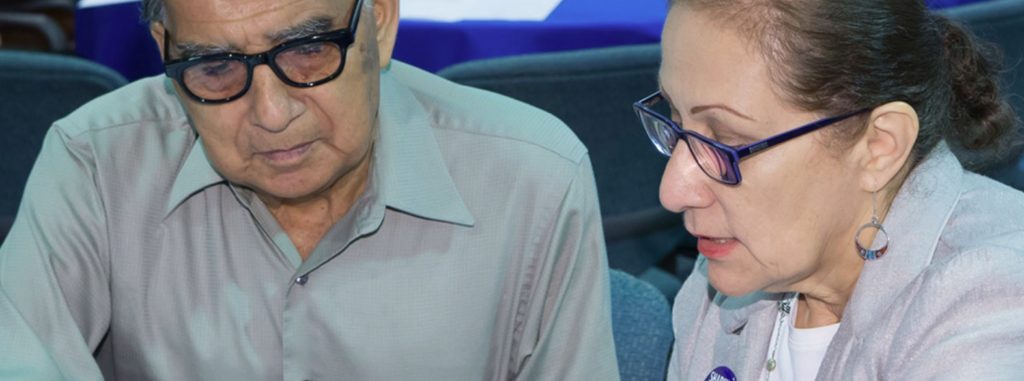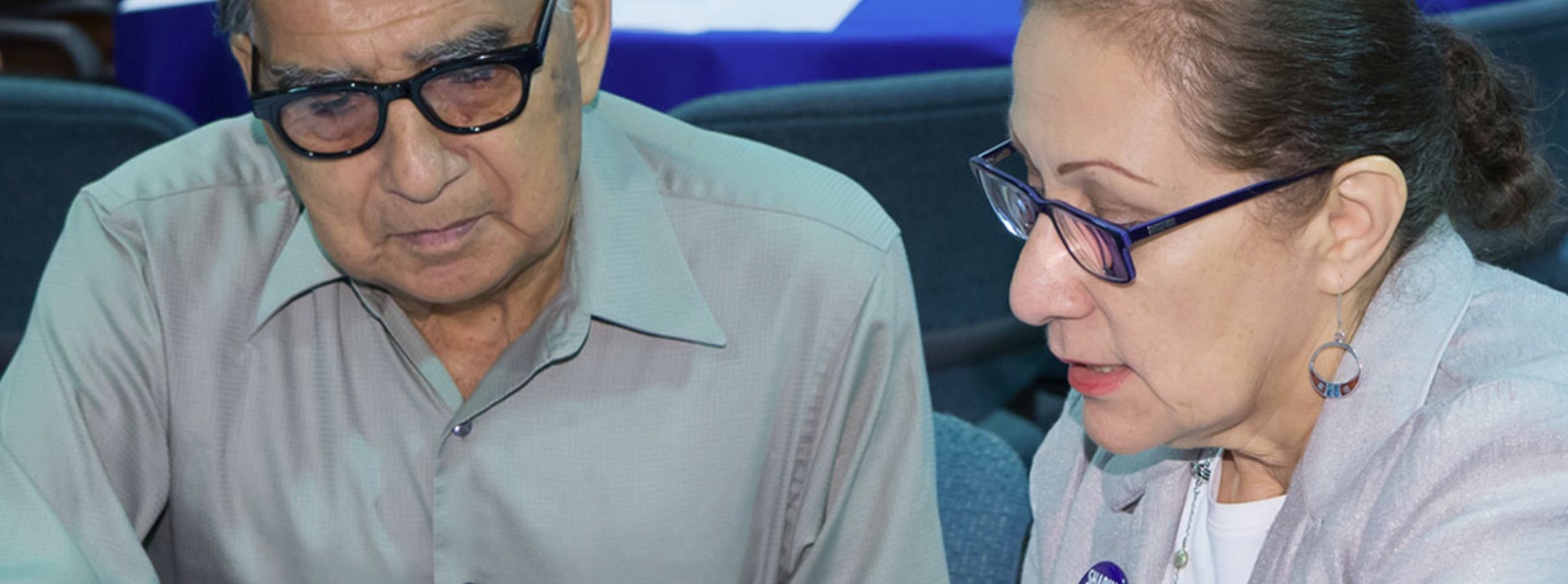
Did you know? Hispanic/Latino* households in the United States are at risk of being undercounted by the 2020 Census. Latinos have been undercounted for decades, disadvantaging our families, communities, and neighborhoods. Today, there are 56.5 million Hispanics living in the United States, and roughly one in three live in hard-to-count census tracts. This year, a record 32 million Latinos are projected to be eligible to vote in the 2020 presidential elections.
Why has the U.S. government undercounted the Latino population?
There are many reasons why Latinos have historically been undercounted by the U.S. Census, including:
- Language Barriers: Almost a third of Hispanics speak English less than “very well.” Historically, areas with low rates of English proficiency have been undercounted.
- Immigrant Status: More than a third of Latinos living in the U.S. were born elsewhere. While no question about citizenship status will be asked on the 2020 census, the harmful rhetoric around immigration and the fear instilled in our communities may make many Hispanic households reluctant to respond to the census questionnaire.
- Living Arrangements: Many Latinos live in intergenerational households or with more than one family. More complex family living arrangements may cause some households or household members to be uncounted, particularly children.
- Poverty: Hispanics have an official poverty rate of 18%, significantly higher than the official U.S. poverty rate of 12%. Households living in poverty may be harder to count.
Why does the 2020 Census matter to Hispanic communities?
The U.S. Constitution requires the government to count everyone living in the country regardless of race, ethnicity, or citizenship status. The first census was conducted in 1790, and the U.S. government has conducted it every 10 years since to determine how many people live in the country.
Here are a few ways that census data is used, according to the U.S. Census Bureau:
- Residents use census data to support community initiatives involving legislation, quality-of-life, and consumer advocacy.
- Real estate developers use census data to build new homes and revitalize old neighborhoods.
- Businesses use census data to decide where to build offices and stores, which create jobs.
- Local governments use census data for public safety and emergency preparedness.
- The U.S. government uses census data to reapportion the House of Representatives, determining how many seats each state gets.
- The U.S. government also uses census data to distribute billions in federal funds, grants, and support to states, counties, and communities.
“Facts accumulated by the census are used not only by the government at all levels—they are used by businesses, non-profits and policymakers, too,” according to the National Conference of State Legislators (NCSL).
“The data collected affect our nation’s ability to ensure equal representation and equal access to important governmental and private sector resources for all Americans, including across racial and ethnic lines,” according to the Leadership Conference Education Fund.
Your census data is anonymous and protected by Federal law. The government is not allowed to release personal data on individuals for 72 years after the completion of the census. That means census data on individuals from the 1940 census only became available in April 2012.
How can I get counted?
Beginning in mid-March 2020, letters with instructions are scheduled to be mailed to 95% of homes around the country. You can respond to the census online, by phone, or by mail in the language that you speak and write in most comfortably.
The questionnaire has several questions that will take about ten minutes to answer, including:
- Name
- Gender
- Age
- Date of birth
- Hispanic origin
- Race
- Relationship to the person completing the questionnaire
The 2020 Census will not ask about your citizenship status or the citizenship status of anyone in your household.
In May 2020, the Census will begin following up door-to-door to homes that haven’t responded. These door-to-door workers are often community members trying to help their neighbors. They will never ask for Social Security numbers, bank or credit card information, donations, or anything on behalf of a political party.
The National Hispanic Council on Aging (NHCOA) urges all our community members – older adults, caregivers, family members, and friends – to get counted this year!
*Throughout this blog we use the term Hispanic/Latino interchangeably. However, we acknowledge that the Census does not classify persons of Portuguese or Brazilian descent as Hispanic.
The opinions expressed in this article are those of the author and do not necessarily reflect those of the Diverse Elders Coalition.

